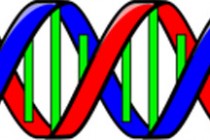Government DNA Collection Under Microscope In California
by Jeremy B. White, The Sacramento Bee
In 2015, genes have many uses.
Soon after every baby in California is born, a hospital worker extracts and logs its genetic information. It will be tested for diseases and then stashed permanently in a warehouse containing a generation of Californians’ DNA.
For those charged with a felony – or, potentially, just arrested – a sliver of genetic code will be taken and placed in a state database that has grown rapidly in the last decade.
As scientists have mapped the personalized blueprints contained in each strand of DNA, the government has been collecting and storing reams of genetic material to combat disease and capture criminals. In seeking to shape when public agencies can take genetic information and how they can use it, lawmakers face a tension between individual privacy and public health and safety.
“You want to make sure government isn’t collecting too much DNA, but you also recognize it is the modern fingerprint,” said Assemblyman Mike Gatto, D-Los Angeles, though he differentiated genetics from fingerprints: “You’re taking the very stuff of life.”
It begins with a prick to the heel. Blood from every baby born in California is screened for diseases such as sickle cell anemia and severe combined immunodeficiency. Every state has a similar program. Where California differs is its policy of storing dried blood on cards indefinitely and, for a fee, loaning them out for research.
The advantages of immediately identifying and treating diseases are indisputable. What makes Gatto and privacy advocates nervous is the knowledge that the government can hold on to that information and share it without consent. Security concerns intensify those fears.
“I think it’s only a matter of time before there’s a high-profile hack, and then somebody would have access to your data,” Gatto said. …
Continue reading on SacBee.com » The Sacramento Bee limits free page views per month
Tags: Data Breach, DNA, Privacy
